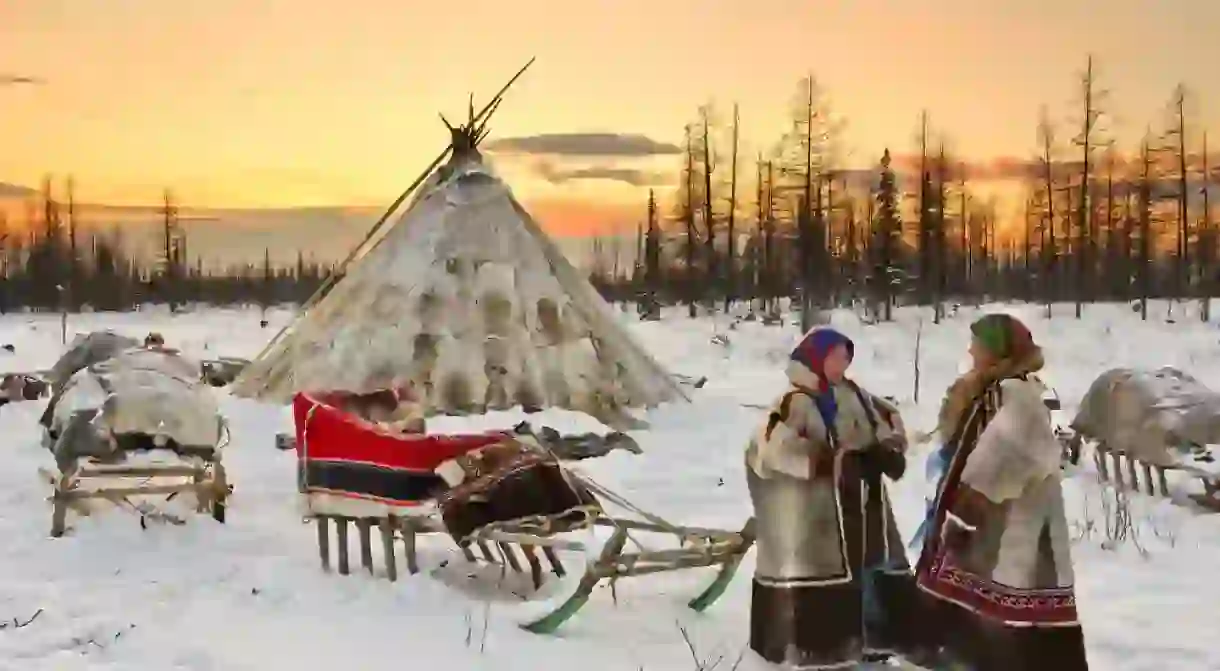An Introduction to the Nenet People

Russia’s most iconic reindeer folk, the Nenets, continue to practice their unique herding style in modern times. This practice has survived a tumultuous history, and the Nenets remain the keepers of Siberia’s Arctic despite new challenges threatening their traditions and way of life.
The Nenet culture and way of life has survived the Soviet collectivisation of reindeer herding and Stalin’s efforts of ethnic cleansing, only to face new issues of a modern kind. The effects of climate change and the pursuit of natural resources continually threaten their ability to use their native land as earlier generations have done. Despite this, the Nenets are a robust people, who are determined to preserve traditional customs and practices.

Homeland
As the wardens of Siberia’s north (above the Arctic Circle), Nenets have inhabited the rarely visited Yamal Peninsula for centuries. In their native tongue, ‘Yamal Peninsula’ translates into land’s end. It is wild and remote, and the climate is harsh. It is also about one and a half times bigger than France. Despite consisting almost entirely of near-to-barren Arctic tundra, the frozen land harbours some of the biggest underground oil deposits on Earth. For the most intrepid traveller, it is also one of the best spots in Russia to view the northern lights.

Culture
The reindeer herd is central to the Nenet traditional way of life. Unlike other reindeer-herding people, the Nenet move massive herds between winter and summer pastures, traversing thousands of kilometres a year across frozen rivers in temperatures as low as -50°C (-58°F). This integral practice illustrates the nomadic traditions of the Nenets, who travel with their herds. Reindeer are a source of food, income, shelter, transportation and clothing for the people. So revered are the reindeer that the animal is often included in marriage dowries, and the Nenets believe that the creatures give themselves to humans for nourishment and transport in exchange for protection from predators along their migratory route. As a result of this belief, there is a kind of spiritual relationship between the Nenets and their precious beasts.

History
The Nenets can trace their heritage back about a thousand years on the peninsula. Throughout this time, they have practiced their traditional methods of reindeer herding. In 1961, the Soviet Union collectivised the practice and established a handful of state-run farms. Herders were under fixed contracts and worked for a salary. Despite this, they were still able to maintain a nomadic existence and keep their family units intact. Today, about 80 percent of the industry has returned to the private sector, while the remaining 20 percent is controlled by the regional government.














